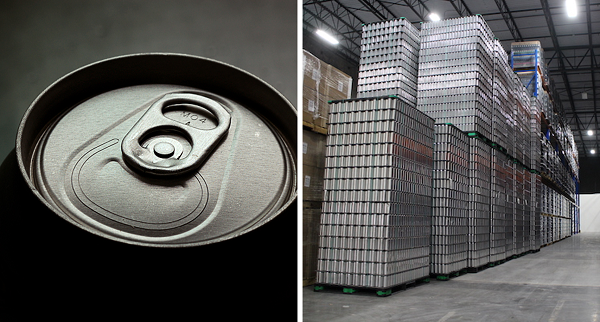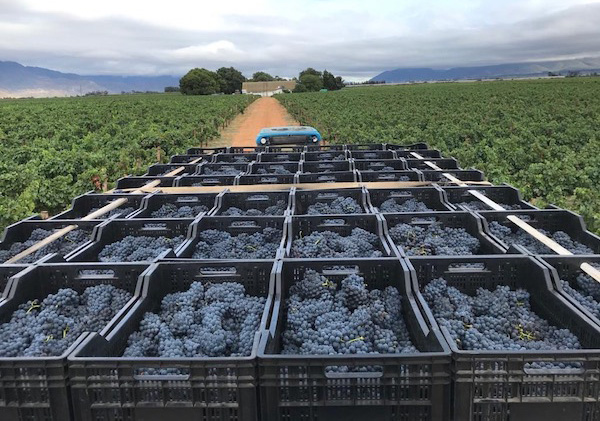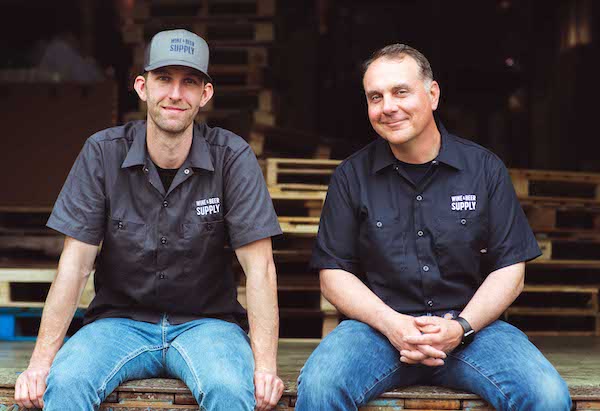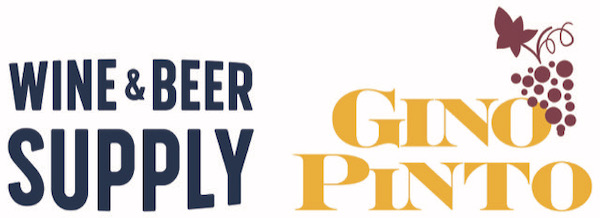
Ashland-based Wine & Beer Supply provides the bottles and cans for many local breweries and wineries. (BizSense file)
As breweries and wineries reopen and patrons raise glasses once again, a local company that supplies booze-holding cans, bottles and glassware has struck a deal to merge with a Garden State counterpart.
Ashland-based Wine & Beer Supply joined forces with Gino Pinto Inc., a decades-old supplier of winemaking equipment out of New Jersey.
Both firms will keep their respective names, with Gino Pinto’s Michael Pinto joining Wine & Beer Supply’s Casey Werderman and Dave Robertson as operating partners of the business.
Werderman said the two sides began discussing a deal before the pandemic.
“Both of us wanted to expand our reach into additional territories,” Werderman said. “For us, we were thinking, ‘Hey, do we want to greenfield a location in the Northeast?’ Because it’s important to our growth. But this was a much better way to go about doing it.”
Since its founding in 2015, Wine & Beer Supply has been providing cans, bottles and other glassware to breweries and wineries, as well as services like mobile packaging and warehousing. Last year it moved into a new headquarters at the Northlake Commerce Center, and over the years it has raised millions in investor capital.

The New Jersey-based firm Gino Pinto supplies wineries with bulk grapes and fruit juice from all over the globe, a service Wine & Beer Supply did not offer previously.
Gino Pinto, meanwhile, has been offering winemaking equipment, grapes, fruit juice, barrels and more since 1968. It serves both commercial wineries and home winemakers.
Werderman said the deal allows Gino Pinto and Wine & Beer Supply to fill in some gaps in service for one another.
“Our whole model is centered around consolidating the supply chain. Interestingly, there isn’t a whole lot of overlap between our organizations. The only overlap is around bottles. That’s it,” Werderman said.
“(Pinto) doesn’t do anything on the beer side. But he does a whole bunch of bulk grapes and bulk juice … and a bunch of winemaking equipment, which we don’t do any of.”
The deal closed June 1 and terms were not disclosed. Attorney Meredith Yoder of Parker, Pollard, Wilton & Peaden was Wine & Beer Supply’s counsel in the merger.
The two firms now operate more than 100,000 square feet of warehouse space in Ashland and Hammonton, New Jersey — Gino Pinto’s hometown about 35 miles southeast of Philadelphia.
The deal isn’t the first time Wine & Beer Supply has gone the merger-and-acquisition route for growth. In 2017, it bought a Harrisonburg-based mobile bottling company.
Werderman said the firm has aggressive growth plans, which include additional locations relatively soon.
However, he said pandemic-induced supply chain issues such as can shortages continue.
“We’ve been fortunate to have strong manufacturing partners that we work with. It’s just really challenging,” he said. “People are coming back into the taprooms and that’s exciting. There is a shift back to kegs which is good to kind of offset some of the can shortages that are out there.”
Werderman said he thinks the craft beverage industry was able to weather the storm of the pandemic well.
“That’s the cool thing for me, looking at the industry as a whole and seeing that it’s resilient in some pretty strong ways,” Werderman said.
While the can shortages are a stressor for the industry, Werderman said he thinks a positive byproduct of online ordering for breweries and wineries is a new database of customers.
“Breweries and wineries have been able to generate more data in the last year than they have ever,” he said. “All of that critical information was just nonexistent. It has, in some ways, allowed them to come out of this even stronger.”

Ashland-based Wine & Beer Supply provides the bottles and cans for many local breweries and wineries. (BizSense file)
As breweries and wineries reopen and patrons raise glasses once again, a local company that supplies booze-holding cans, bottles and glassware has struck a deal to merge with a Garden State counterpart.
Ashland-based Wine & Beer Supply joined forces with Gino Pinto Inc., a decades-old supplier of winemaking equipment out of New Jersey.
Both firms will keep their respective names, with Gino Pinto’s Michael Pinto joining Wine & Beer Supply’s Casey Werderman and Dave Robertson as operating partners of the business.
Werderman said the two sides began discussing a deal before the pandemic.
“Both of us wanted to expand our reach into additional territories,” Werderman said. “For us, we were thinking, ‘Hey, do we want to greenfield a location in the Northeast?’ Because it’s important to our growth. But this was a much better way to go about doing it.”
Since its founding in 2015, Wine & Beer Supply has been providing cans, bottles and other glassware to breweries and wineries, as well as services like mobile packaging and warehousing. Last year it moved into a new headquarters at the Northlake Commerce Center, and over the years it has raised millions in investor capital.

The New Jersey-based firm Gino Pinto supplies wineries with bulk grapes and fruit juice from all over the globe, a service Wine & Beer Supply did not offer previously.
Gino Pinto, meanwhile, has been offering winemaking equipment, grapes, fruit juice, barrels and more since 1968. It serves both commercial wineries and home winemakers.
Werderman said the deal allows Gino Pinto and Wine & Beer Supply to fill in some gaps in service for one another.
“Our whole model is centered around consolidating the supply chain. Interestingly, there isn’t a whole lot of overlap between our organizations. The only overlap is around bottles. That’s it,” Werderman said.
“(Pinto) doesn’t do anything on the beer side. But he does a whole bunch of bulk grapes and bulk juice … and a bunch of winemaking equipment, which we don’t do any of.”
The deal closed June 1 and terms were not disclosed. Attorney Meredith Yoder of Parker, Pollard, Wilton & Peaden was Wine & Beer Supply’s counsel in the merger.
The two firms now operate more than 100,000 square feet of warehouse space in Ashland and Hammonton, New Jersey — Gino Pinto’s hometown about 35 miles southeast of Philadelphia.
The deal isn’t the first time Wine & Beer Supply has gone the merger-and-acquisition route for growth. In 2017, it bought a Harrisonburg-based mobile bottling company.
Werderman said the firm has aggressive growth plans, which include additional locations relatively soon.
However, he said pandemic-induced supply chain issues such as can shortages continue.
“We’ve been fortunate to have strong manufacturing partners that we work with. It’s just really challenging,” he said. “People are coming back into the taprooms and that’s exciting. There is a shift back to kegs which is good to kind of offset some of the can shortages that are out there.”
Werderman said he thinks the craft beverage industry was able to weather the storm of the pandemic well.
“That’s the cool thing for me, looking at the industry as a whole and seeing that it’s resilient in some pretty strong ways,” Werderman said.
While the can shortages are a stressor for the industry, Werderman said he thinks a positive byproduct of online ordering for breweries and wineries is a new database of customers.
“Breweries and wineries have been able to generate more data in the last year than they have ever,” he said. “All of that critical information was just nonexistent. It has, in some ways, allowed them to come out of this even stronger.”





